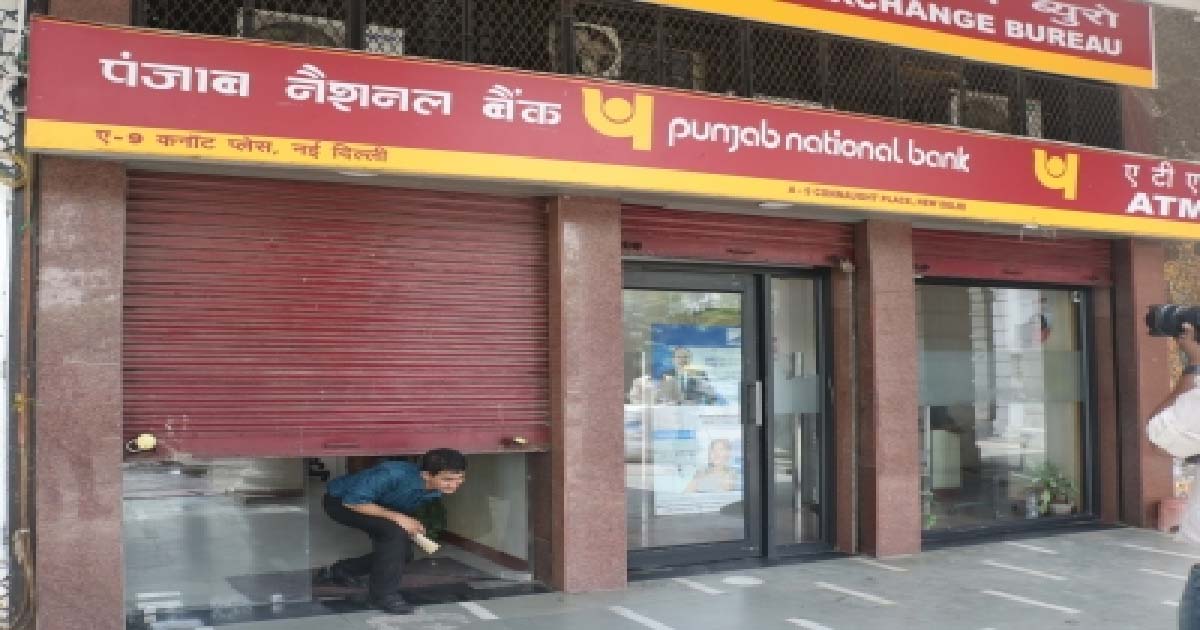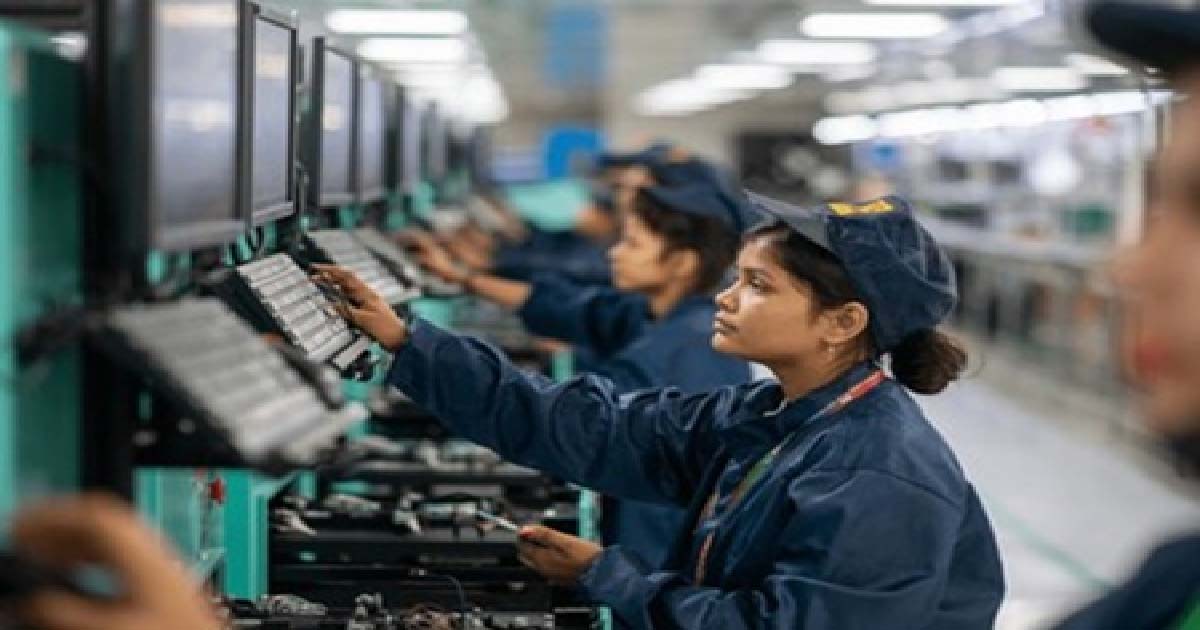Business
Freshwater-based coal power plants guzzle the most water: CSE

Even six years after the water consumption norms came into force, the water-guzzling coal power industry is ignoring water regulations and there is a high degree of non-compliance observed in the sector, a new report by the Centre for Science and Environment (CSE) says.
Counted among the most water-intensive industries in India, the coal power sector is responsible for nearly 70 per cent of the total freshwater withdrawal by all industries in the country. Indian power plants with cooling towers consume twice as much water as their global counterparts, said the report titled ‘Water Inefficient Power’.
According to the 2015 norms (revised again in 2018), plants installed before January 1, 2017, were required to meet a specific water consumption limit of 3.5 cubic metre of water per MWh; plants installed after January 1, 2017 had to meet the norm of three cubic metre of water per MWh, apart from adopting zero liquid discharge.
Additionally, all freshwater-based plants were required to install cooling towers and subsequently achieve the norm of 3.5 cubic metre of water per MWh. All sea water-based plants were exempted from meeting the norms.
The deadline to meet the water norms was December 2017 which has already passed. The water norms for coal power plants were introduced in 2015 along with the emission norms. Though emission norms timelines for the sector were revised twice by the Ministry of Coal once in 2017 and recently in 2021, the issue of compliance and implementation of water norms has been completely overlooked, the CSE said in a release.
CSE’s programme Director for Industrial Pollution Unit, Nivit Kumar Yadav, said, “This is when many power producing regions of the country are facing acute water shortage. Also there is huge water pollution due to the effluent discharge by the power plants.”
The CSE surveyed more than 154 GW of total coal power capacity and found nearly 50 per cent of the freshwater-based plants to be non-complying. Most of these plants belong to state-owned companies.
The largest number of non-complying plants were from Maharashtra and Uttar Pradesh. Belonging to MahaGENCO (Maharashtra’s power generation company) and UPRVUNL (Uttar Pradesh’s power generation company), a majority of these plants are old with inefficient practices which lead to water wastage.
The CSE survey has found that old and inefficient once-through cooling water-based plants in India continue to operate without installing cooling towers. These plants are not just flouting water norms but also emission norms, the survey added.
Built before 1999, all once-through-based power plants in India are old and polluting. Many of these plants were identified for retirement but have not yet been retired. They continue to operate with no plans to upgrade or install either emission control equipment or cooling towers.
“Allowing these older plants to continue to pollute cannot be an option. Plants identified for retirement must be closed down immediately if they have no plans to retrofit or to install emission control technologies and/or cooling towers,” said Deputy Programme Manager, Industrial Pollution unit of CSE, Sugandha Arora.
As per the CSE’s recent estimates, nearly 48 per cent of India’s existing coal power fleet is located in water-scarce districts like Nagpur and Chandrapur in Maharashtra; Raichur in Karnataka; Korba in Chhattisgarh; Barmer and Baran in Rajasthan; Khammam and Kothagudem in Telangana; and Cuddalore in Tamil Nadu. There have been reports of conflicts over water use between industries and local people.
“This sector has a massive water footprint and therefore, all efforts must be made to mitigate this impact. There is huge scope of reducing the sector’s water demand by ensuring implementation of the 2015 standards and addressing the challenges related to accurate reporting of data, old inefficient once-through cooling plants and implementing zero discharge in newer plants.”
Business
PNB declares Rs 2,434 crore alleged loan fraud against former promoters of Srei firms

New Delhi, Dec 27: Punjab National Bank (PNB) has declared a Rs 2,434 crore alleged loan fraud by the former promoters of Srei Equipment Finance and Srei Infrastructure Finance.
In a late evening exchange filing, the state-run PNB said that “Pursuant to the applicable provisions of SEBI (LODFR) Regulations, 2015 and the Bank’s Policy for determining materiality of events/information required to be reported to the Stock Exchanges, it is hereby informed that the bank has reported borrowal fraud to RBI against the erstwhile promoters of Srei Equipment Finance and Srei Infrastructure Finance”.
PNB said that of the total fraudulent borrowings, Rs 1,240.94 crore is related to Srei Equipment Finance and the remaining Rs 1,193.06 crore is related to Srei Infrastructure Finance.
The public sector lender also said it has 100 per cent provisions for these loans. The bank said the declaration of these two accounts as frauds is based on a forensic audit, which pointed to irregularities such as loans to connected parties and potential evergreening of loans.
However, Srei group has challenged the forensic audit report as the basis for the fraud classification, noting the matter is subjudice.
Other banks such as Punjab & Sind Bank, Bank of Baroda, and Union Bank of India have also earlier declared a loan fraud in connection with Srei companies.
The Srei group has been undergoing an insolvency resolution process since 2021, and the National Company Law Tribunal has approved a resolution plan submitted by the National Asset Reconstruction Company in 2023. The Srei group was sent to the NCLT by the Reserve Bank in October 2021 after it had found governance issues and defaults and the regulator superseded the boards of Srei Infrastructure Finance and Srei Equipment Finance.
In February 2023, NARCL emerged as the successful bidder for SIFL and SEFL which together owed Rs 32,750 crore to lenders. NARCL won the bid in February 2023, got the NCLT approval in August 2023, and finalised the acquisition by January 2024.
Business
India 2nd largest mobile manufacturing country in the world: Minister

New Delhi, Dec 27: India has ramped up electronics production six-fold and is the second largest mobile manufacturing country in the world, Union Minister of Electronics and Information Technology Ashwini Vaishnaw said on Saturday.
In multiple posts on social media platform X, Vaishnaw said that the country has increased electronic exports eightfold over the past 11 years, mainly driven by policy support from the Production Linked Incentive Scheme.
The PLI scheme for Large Scale Electronics Manufacturing has attracted over Rs 13,475 crore in investment and helped achieve production of about Rs 9.8 lakh crore in the electronics sector, driving manufacturing, jobs, and exports, he said.
Vaishnaw highlighted that “over 1.3 lakh jobs were created in the last five years and that electronics is now India’s third‑largest export category, climbing from seventh place”.
He said the country was initially focusing on finished products, but the Electronics Component Manufacturing Scheme supported a shift to “building capacity for modules, components, sub-modules, raw materials, and the machines that make them.”
The Electronics Component Manufacturing Scheme has 249 applications representing Rs 1.15 lakh crore in investment, Rs 10.34 lakh crore in production, and creating 1.42 lakh jobs, the post said, adding it is the highest-ever investment commitment in India’s electronics sector, indicating industry confidence.
Vaishnaw also noted progress in the semiconductor sector, saying ten units have been approved, with three already in pilot or early production. The minister said that “fabs and ATMPs from India will soon supply chips to phone and electronics manufacturers”.
“Electronics manufacturing created 25 lakh jobs in the last decade. This is the real economic growth at the grassroots level,” the minister said.
“As we scale semiconductors and component manufacturing, job creation will accelerate. From finished products to components, production is growing. Exports are rising. Global players are confident. Indian companies are competitive. Jobs are being created. This is ‘Make in India’ impact story!” he noted.
Business
Indian stock market ends holiday-shortened week in positive terrain

Mumbai, Dec 27: Indian equity markets ended the week in a positive terrain, buoyed by expectations of stronger domestic demand, a favourable liquidity outlook and optimism over potential Fed policy easing in 2026, analysts said on Saturday.
The holiday-shortened week opened with a bullish undertone; however, momentum tapered off as the days progressed.
On Friday, Sensex closed at 85,041.45, slipping 367.25 points or 0.43 per cent. Nifty also ended in the red, falling 99.80 points or 0.38 per cent to settle at 26,042.30.
According to market watchers, the year-end lull kept trading largely range-bound, with hopes for a Santa Claus rally diminishing amid the absence of fresh catalysts, limited progress in US–India trade talks, and caution ahead of the upcoming earnings season.
“Sectoral trends were mixed, marked by selective profit booking across most segments, while metals, FMCG, and media stocks offered notable resilience,” said Vinod Nair, Head of Research, Geojit Investments Ltd.
Nifty 50 ended the week at 26,042, continuing to respect its long-term rising channel on the daily chart. The index remains comfortably above the 20-day EMA cluster, preserving the medium-term bullish structure, said analysts, adding that as long as Nifty sustains above the 26,000–25,900 support zone, the overall bias remains positive.
On the domestic front, RBI’s liquidity interventions, such as open market operations and a USD/INR buy–sell swap, helped stabilise the rupee, though persistent FII outflows continued to weigh on sentiment.
Meanwhile, gold advanced on safe-haven demand, while crude prices hovered near multi-year lows, though U.S. steps to tighten pressure on Venezuelan oil shipments could exert upward pressure in the near term
Looking ahead, market sentiment is likely to stay cautious as investors brace for the upcoming earnings season while remaining attuned to global developments and currency movements, said analysts.
Attention will also turn to next week’s data releases, including India’s industrial and manufacturing output figures, manufacturing PMI, and the US FOMC minutes, said Nair.
-

 Crime3 years ago
Crime3 years agoClass 10 student jumps to death in Jaipur
-

 Maharashtra1 year ago
Maharashtra1 year agoMumbai Local Train Update: Central Railway’s New Timetable Comes Into Effect; Check Full List Of Revised Timings & Stations
-

 Maharashtra1 year ago
Maharashtra1 year agoMumbai To Go Toll-Free Tonight! Maharashtra Govt Announces Complete Toll Waiver For Light Motor Vehicles At All 5 Entry Points Of City
-

 Maharashtra1 year ago
Maharashtra1 year agoFalse photo of Imtiaz Jaleel’s rally, exposing the fooling conspiracy
-

 National News1 year ago
National News1 year agoMinistry of Railways rolls out Special Drive 4.0 with focus on digitisation, cleanliness, inclusiveness and grievance redressal
-

 Maharashtra1 year ago
Maharashtra1 year agoMaharashtra Elections 2024: Mumbai Metro & BEST Services Extended Till Midnight On Voting Day
-

 National News1 year ago
National News1 year agoJ&K: 4 Jawans Killed, 28 Injured After Bus Carrying BSF Personnel For Poll Duty Falls Into Gorge In Budgam; Terrifying Visuals Surface
-

 Crime1 year ago
Crime1 year agoBaba Siddique Murder: Mumbai Police Unable To Get Lawrence Bishnoi Custody Due To Home Ministry Order, Says Report












